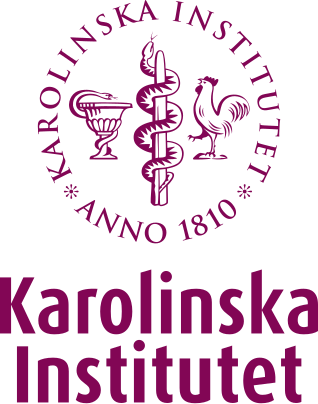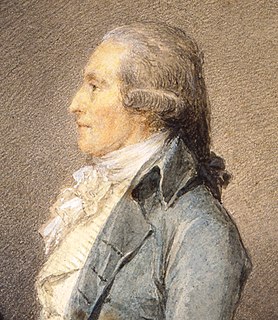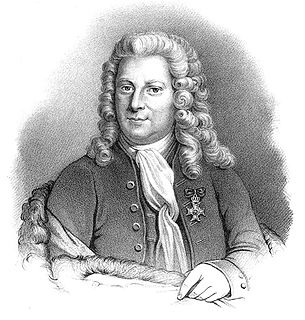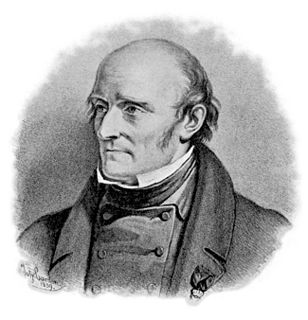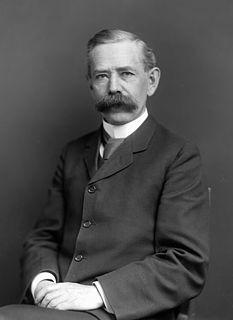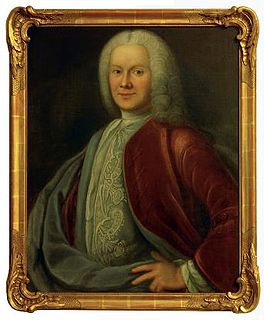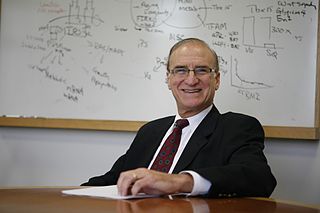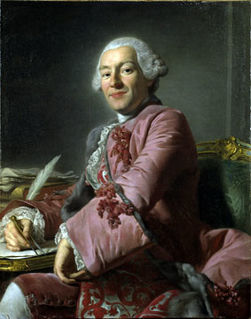Peter Gustaf Tengmalm (29 June 1754 – 27 August 1803) was a Swedish physician and naturalist.

Sweden, officially the Kingdom of Sweden, is a Scandinavian Nordic country in Northern Europe. It borders Norway to the west and north and Finland to the east, and is connected to Denmark in the southwest by a bridge-tunnel across the Öresund, a strait at the Swedish-Danish border. At 450,295 square kilometres (173,860 sq mi), Sweden is the largest country in Northern Europe, the third-largest country in the European Union and the fifth largest country in Europe by area. Sweden has a total population of 10.2 million of which 2.5 million have a foreign background. It has a low population density of 22 inhabitants per square kilometre (57/sq mi). The highest concentration is in the southern half of the country.

A physician, medical practitioner, medical doctor, or simply doctor, is a professional who practises medicine, which is concerned with promoting, maintaining, or restoring health through the study, diagnosis, prognosis and treatment of disease, injury, and other physical and mental impairments. Physicians may focus their practice on certain disease categories, types of patients, and methods of treatment—known as specialities—or they may assume responsibility for the provision of continuing and comprehensive medical care to individuals, families, and communities—known as general practice. Medical practice properly requires both a detailed knowledge of the academic disciplines, such as anatomy and physiology, underlying diseases and their treatment—the science of medicine—and also a decent competence in its applied practice—the art or craft of medicine.
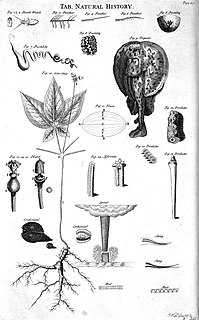
Natural history is a domain of inquiry involving organisms including animals, fungi and plants in their environment; leaning more towards observational than experimental methods of study. A person who studies natural history is called a naturalist or natural historian.
Tengmalm was born in Stockholm and studied medicine at Uppsala University. He spent his spare time studying birds and became an accomplished taxidermist. He graduated in 1785 and moved to the town of Eskilstuna, where he worked as the provincial medical officer. In 1792 he travelled to Scotland and England, meeting other naturalists including Joseph Banks, and returning to Stockholm in the following year.
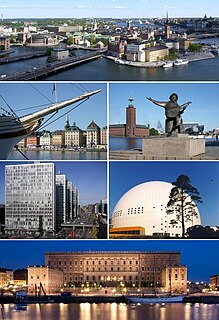
Stockholm is the capital of Sweden and the most populous urban area in the Nordic countries; 962,154 people live in the municipality, approximately 1.5 million in the urban area, and 2.3 million in the metropolitan area. The city stretches across fourteen islands where Lake Mälaren flows into the Baltic Sea. Just outside the city and along the coast is the island chain of the Stockholm archipelago. The area has been settled since the Stone Age, in the 6th millennium BC, and was founded as a city in 1252 by Swedish statesman Birger Jarl. It is also the capital of Stockholm County.

Medicine is the science and practice of establishing the diagnosis, prognosis, treatment, and prevention of disease. Medicine encompasses a variety of health care practices evolved to maintain and restore health by the prevention and treatment of illness. Contemporary medicine applies biomedical sciences, biomedical research, genetics, and medical technology to diagnose, treat, and prevent injury and disease, typically through pharmaceuticals or surgery, but also through therapies as diverse as psychotherapy, external splints and traction, medical devices, biologics, and ionizing radiation, amongst others.

Uppsala University is a research university in Uppsala, Sweden, and is the oldest university in Sweden and all of the Nordic countries still in operation, founded in 1477. It ranks among the world's 100 best universities in several high-profile international rankings. The university uses "Gratiae veritas naturae" as its motto and embraces natural sciences.
Tengmalm then became medical officer for Västmanland. He contributed papers on both medicine and ornithology to the Royal Swedish Academy of Sciences, becoming a member in 1797. He died of dysentery, which he caught from his patients during an epidemic.
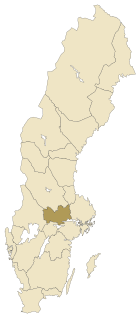
Västmanland is a historical Swedish province, or landskap, in middle Sweden. It borders Södermanland, Närke, Värmland, Dalarna and Uppland.

Ornithology is a branch of zoology that concerns the study of birds. Several aspects of ornithology differ from related disciplines, due partly to the high visibility and the aesthetic appeal of birds.
The Royal Swedish Academy of Sciences is one of the royal academies of Sweden. Founded on June 2, 1739, it is an independent, non-governmental scientific organization which takes special responsibility for ptomoting the natural sciences and mathematics and strengthen their influence in society, whilst endeavouring to promote the exchange of ideas between various disciplines.
Tengmalm was interested in owls and improved upon Linnaeus' owl classification in a paper to the Academy of Sciences. Johann Friedrich Gmelin named an owl after him in 1788 (Strix tengmalmi) in the mistaken belief that Tengmalm had been the first to describe it. It has since been renamed Aegolius funereus, but the common name, Tengmalm's owl, persists.

Owls are birds from the order Strigiformes, which includes about 200 species of mostly solitary and nocturnal birds of prey typified by an upright stance, a large, broad head, binocular vision, binaural hearing, sharp talons, and feathers adapted for silent flight. Exceptions include the diurnal northern hawk-owl and the gregarious burrowing owl.
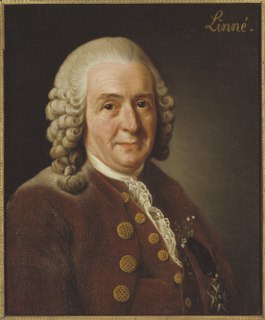
Carl Linnaeus, also known after his ennoblement as Carl von Linné, was a Swedish botanist, physician, and zoologist who formalised binomial nomenclature, the modern system of naming organisms. He is known as the "father of modern taxonomy". Many of his writings were in Latin, and his name is rendered in Latin as Carolus Linnæus.
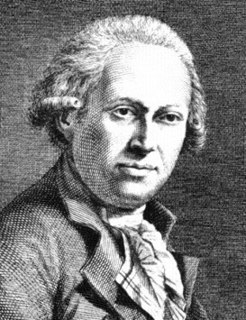
Johann Friedrich Gmelin was a German naturalist, botanist, entomologist, herpetologist, and malacologist.
